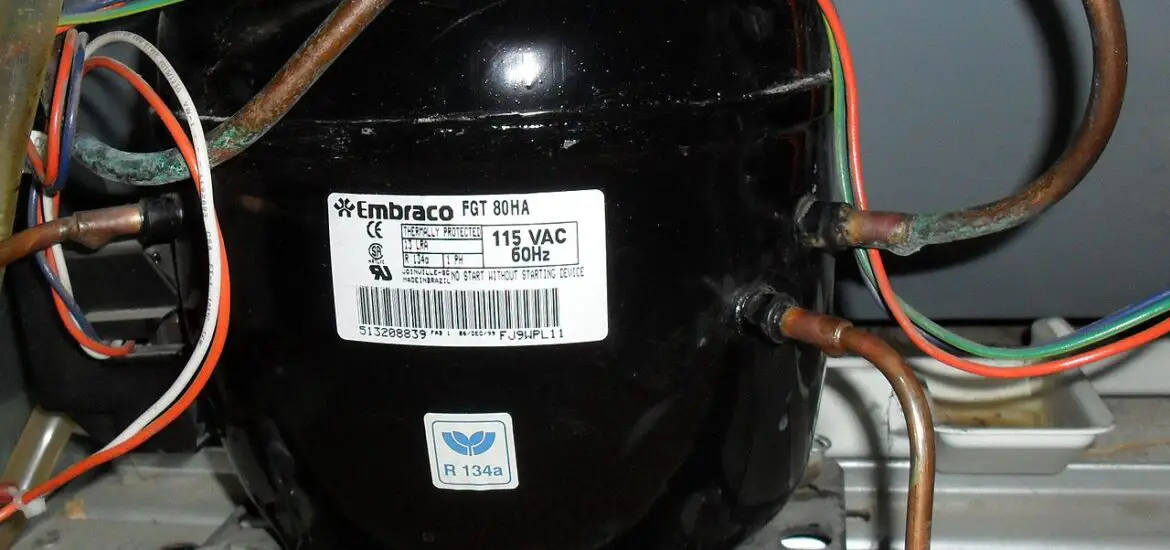Refrigeration compressor working principle: it might seem like a head-scratcher, but really, it’s the heart of your chilly food fortress (a.k.a your refrigerator!). It’s the behind-the-scenes star, pulling the strings and doing the hard work. Ready for some cool insights? Well, you’re in for a treat!

Table of Contents
Introduction to the Refrigeration Compressor
You know that humming sound your fridge makes? That’s the compressor hard at work. This mechanical marvel’s task is pumping the refrigerant throughout your fridge. It’s kind of like the heart of your refrigerator, maintaining the cycle that keeps your leftovers perfectly chilled.
Understanding the Refrigeration Compressor Working Principle
The compressor’s working principle is tied up in the refrigeration cycle. It’s a fascinating process with pressure, heat transfer, and thermodynamics all playing a part. Ready to get into it?
The Compression Process
The compressor’s main job is to compress, or squeeze, the refrigerant gas. It’s similar to how you squeeze a balloon to make it smaller, except the compressor is dealing with gas, not air. By doing this, it increases the pressure and temperature of the refrigerant.
The Role of the Compressor in Cooling
By increasing the pressure, the compressor sets the stage for cooling. Imagine if you could squeeze all the heat out of a room, like wringing out a wet cloth. That’s what the compressor does to the refrigerant gas – it squeezes it until it’s ready to release its heat.
Heat Displacement in Refrigeration
The compressor doesn’t just compress the refrigerant; it pushes it along its journey around the fridge. By doing so, it helps move heat from inside your fridge to the outside. You can think of it as a thermal bouncer, showing the heat the exit!
Check out these other related articles…
Refrigerator Compressor Gas Name: Your Complete Guide
Fridge Compressor Gas Filling: Your Essential Guide
Refrigerator Compressor Efficiency: A Detailed Guide
Refrigerator Compressor Knocking: Reasons & Solutions
Refrigerator Compressor Clicking On and Off [Solutions]
What’s Inside a Fridge Compressor: Key Components and their Roles
Ever thought about the guts of a compressor? It’s packed with a few critical parts that keep things running smoothly.
The Motor
The motor is the powerhouse of the compressor. It generates the energy needed to compress the refrigerant gas. You could liken it to a weightlifter, mustering up the strength to lift a heavy barbell.
Electric Motor
Most fridge compressors use an electric motor. This nifty component runs on electricity from your home, converting it into mechanical energy. It’s like a tiny powerhouse, converting and delivering energy to where it’s needed.
Compressor Pump
The pump is the part of the compressor that physically squeezes the refrigerant gas. Imagine a tiny hand inside the compressor, squeezing the gas until it’s pressurized and ready to go!
Reciprocating Compressors
Some compressors use a reciprocating pump. This design employs a piston in a cylinder to compress the gas. It’s like a tiny car engine inside your fridge, running the show!
Rotary Compressors
Other compressors use a rotary design, where a rotor spins to compress the gas. Picture a little wheel inside your compressor, spinning around to keep your drinks cool.
Compressor Valves
Valves in the compressor control the flow of refrigerant. They open and close at the right time to allow the gas in and out of the compressor. It’s like a traffic cop, directing the flow of refrigerant traffic!
The Location of the Compressor in a Refrigerator
So, where does this little mechanical miracle live in your fridge? Let’s find out.
The Compressor in Standard Refrigerators
In most traditional fridges, the compressor is located at the bottom, in the back. It’s like the basement of your fridge, where all the important machinery lives!
The Compressor in Modern Refrigerator Designs
In newer fridge designs, you might find the compressor in different spots, but it’s usually still at the back. It’s all about keeping the noisy parts out of sight (and earshot)!
Maintenance and Troubleshooting for the Refrigeration Compressor
How do you keep your compressor happy, and what if something goes wrong? Let’s cover some basics.
Regular Maintenance of the Compressor
Properly maintaining your compressor can help prolong the life of your fridge. It’s as simple as keeping the area around the fridge clean, ensuring good airflow, and getting regular service checkups. Remember, a happy compressor means a happy fridge!
Identifying Common Compressor Problems
Is your fridge not cooling properly? Or maybe it’s making strange noises? These could be signs that something’s up with the compressor. It’s like your fridge’s way of calling for help.